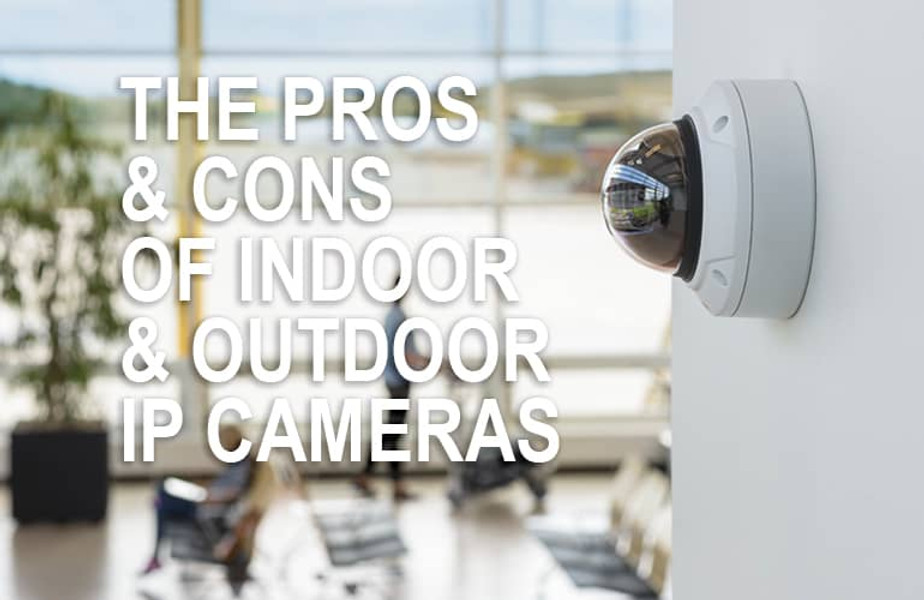Whether in a home or business setting, the installation of a new security system involves considering a myriad of factors. What sort of space will the camera be in? What sort of area do you want the camera to monitor? Is the camera indoors or outdoors? These and a series of other important factors are critical to deciding what sort of security system is the best for your needs. IP Camera systems have fast become the security system of choice for home and business surveillance, inside or out. But what are the differences between an indoor and outdoor IP camera?
Pros of an Outdoor Camera
Primarily the largest difference in indoor vs outdoor IP cameras will be in what type of external factors the camera is designed to withstand. The kind of environment the camera will be placed in is a large consideration one must make before investing in a security system. The fluctuation of temperature from summer highs to winter lows can adversely affect, or in some cases shut down a camera system that is not designed for those extremes. Other factors like high heat, intense cold, humidity, dust, and sand can also affect the performance if the outdoor camera is not rated for that environment. But when those variables are accounted for a good IP Camera system rated for that environment can withstand all those hazards.
One feature you might look for in an outdoor camera is light sensitivity. Depending on the environment the camera is placed in it will have different lighting challenges. This is of course a handy feature when the lighting conditions change quite literally by the hour. A security camera wouldn’t do much good outside if it could only see its area for a few hours a day when the sun is just right.
Cons of an Outdoor Camera
With all that an outdoor IP camera is made to endure there are of course some drawbacks. The domes or housing units for outdoor IP cameras provide the device with more protection, but also make them difficult to hide. Because of their location an outdoor camera can be more vulnerable to potential tampering or vandalization. Because of the more robust housing to protect the camera from the elements and potential tampering the outdoor camera systems have the potential to be more expensive to install as well.
Pros of an Indoor Camera
Indoor IP cameras have a large advantage over their outdoor counterparts in terms of their cost and size. Indoor cameras tend to be lighter weight, smaller, and less intrusive. This flexibility allows them to be placed in a wide variety of settings. An obviously placed camera generally is a useful deterrent for unwanted behavior in an area. Covert surveillance has its uses as well, both for capturing unwanted activities and keeping peoples minds at ease. In situations like these a small indoor camera can be hidden in an exit sign, fire detector, or other discrete place to maintain a watchful eye without the camera drawing attention to itself.
Cons of an Indoor Camera
While there are a lot of benefits to indoor cameras, they do have drawbacks as well. More may be needed to cover an area, particularly if the cameras must be concealed. They are also less durable than their outdoor counterparts, and therefore more susceptible to damage by tampering or external factors like dust or extreme temperatures.
Knowing the pros and cons of both indoor and outdoor cameras is the best way to start making an informed decision about the best set up for your security system.

